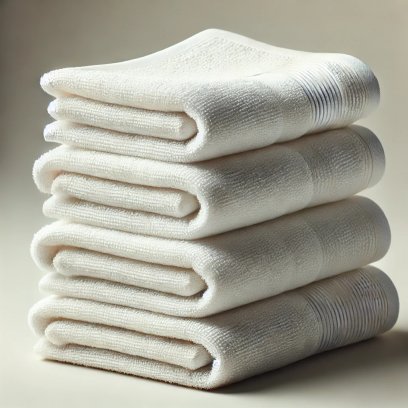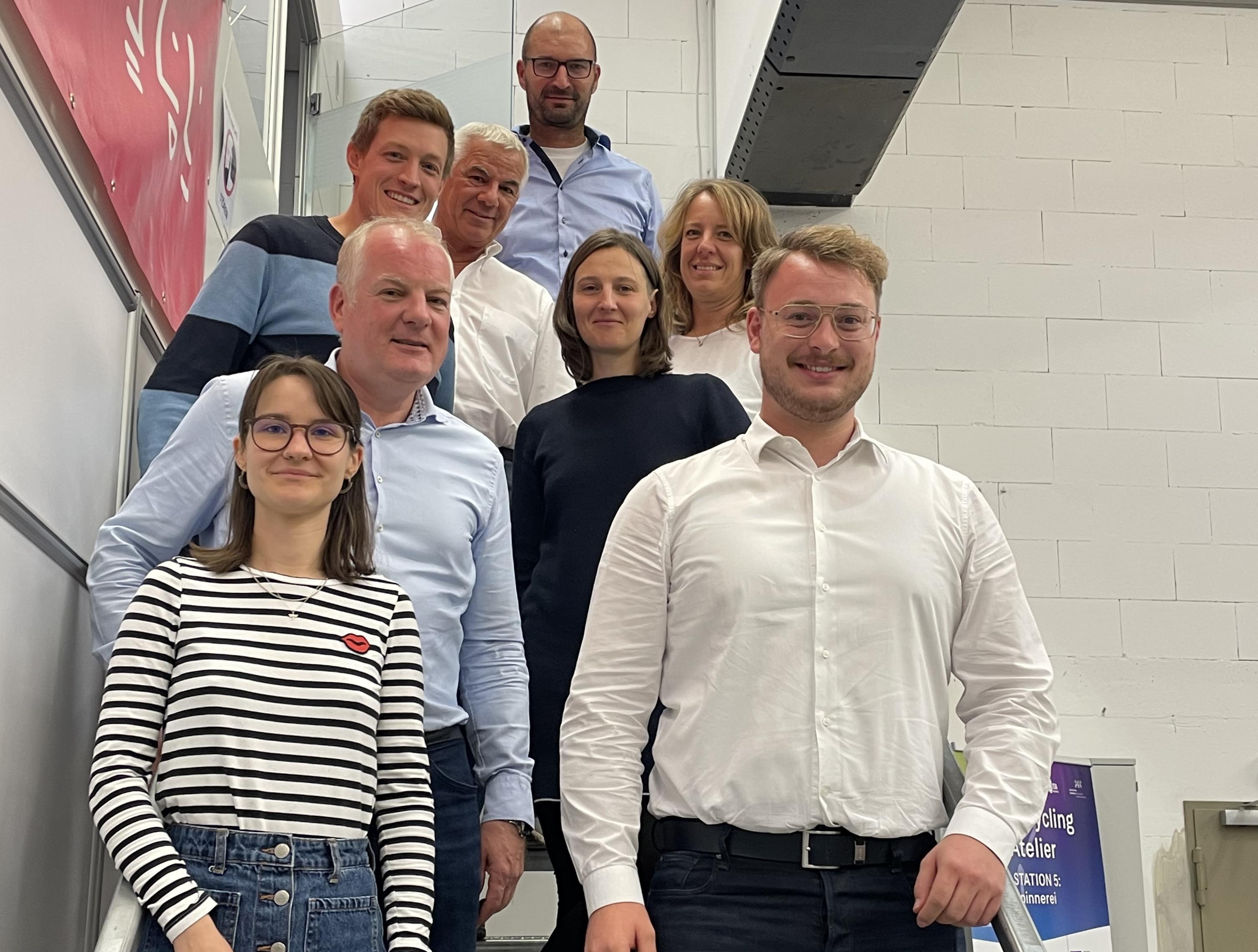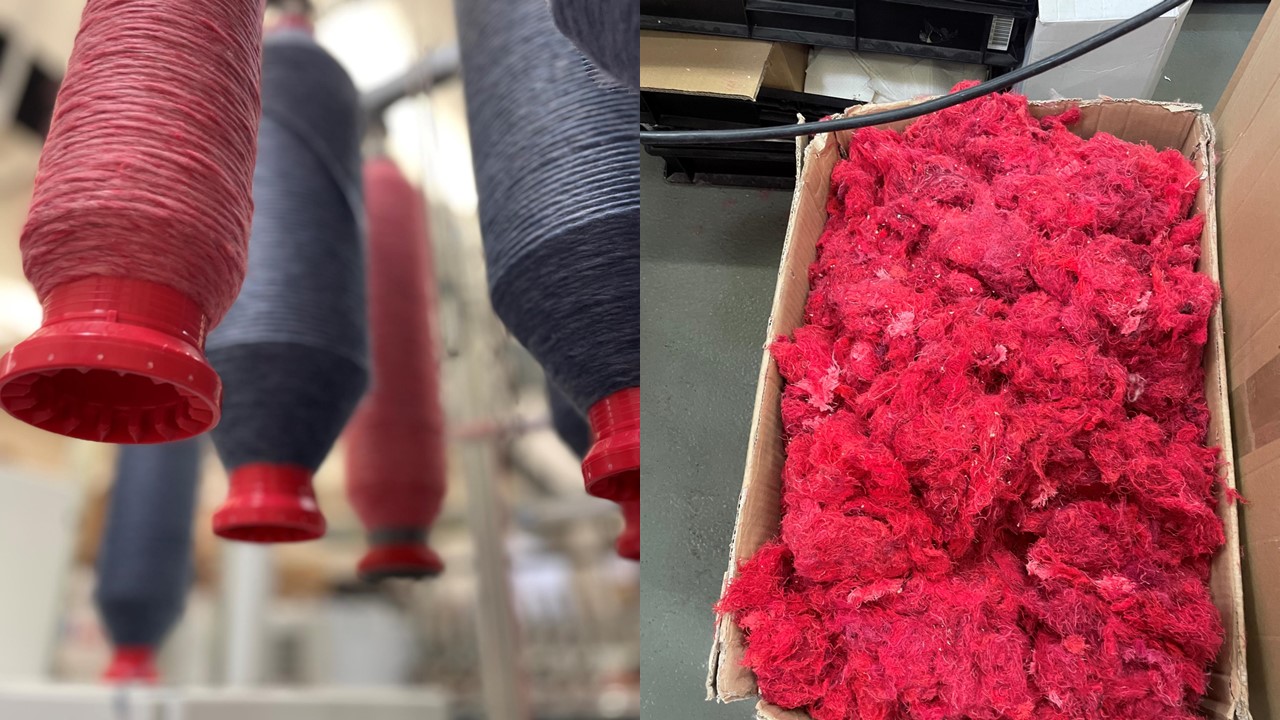
Healthy growth for Recot2
Project partners optimising cotton recycling and spinning processes.

6th November 2024
Innovation in Textiles
|
Germany
With funding from the German Federal Environmental Foundation, German cotton spinner Gebrüder Otto has been working with the Recycling Atelier at ITA Augsburg in a 12-month project aimed at creating cotton towels based on yarns with 50% fibre content recycled from post-consumer waste.
“The annual global harvest of raw cotton has fluctuated relatively constantly over the past twenty years at between 100 and 120 million bales and there is not too much room for improvement,” observes Otto managing director Andreas Merkel. “Acreage, water and the right climatic conditions are limiting factors, but around 1.6 million tons of waste textiles are collected in Germany alone each year which are too valuable for the bin. There is a new cotton field right on our doorstep, but so far this reservoir of resources has remained poorly used. We regularly receive enquiries from customers looking for tailor-made circular solutions.”
“Currently, almost 75 per cent of the 1.6 million tons of used textiles end up in landfills or are incinerated,” adds Dr Georg Stegschuster, head of the Recycling Atelier at ITA Augsburg. “Just one per cent of used textiles is fibre-to-fibre recycled and our goal must be to significantly increase this share.”

Since early summer 2024, the project partners have been working on producing a cotton yarn containing 50% post-consumer cotton waste, of medium fineness suitable for towel production.
A feasibility study conducted by ITA Augsburg shows that this type of yarn is not only possible but comes with considerable economic and environmental benefits. Water consumption, energy use and CO₂ emissions are all significantly lower, with a fully post-consumer recycled yarn having just one-tenth of the environmental impact of virgin cotton yarn.
The project is now focused on refining the recycling process, which involves breaking down discarded textiles and turning them into reusable fibres. White towels which are made from a single material are particularly well-suited for this and Otto is optimising its spinning processes to accommodate the different properties of recycled fibres, which tend to be shorter and with distinct surface characteristics compared to new cotton.
Quality
“The first tests have gone well but how the new development is ultimately received by customers ultimately depends on its quality,” says Merkel. “A yarn with a high recycled content must not differ from a cotton yarn made from 100 percent new raw materials.”
For over a decade, Otto has offered recot², a yarn made from 25% recycled pre-consumer waste and 75% organic virgin cotton. In terms of the finished textiles, recot2 textiles save 5,000 litres of water per kilo.

“Although we’ve offered recot² since 2009, demand has only surged in the past five to ten years,” Merkel adds. “We believe there will be similar interest in PCR cotton yarns, even if it takes time for the market to fully embrace this sustainable shift.”
Founded in 1901, Dietenheim-headquartered Gebrüder Otto is still an owner-managed family business and with 160 employees generated sales of around €30 million in 2023.
Traditionally, the company’s focus has been on high-quality cotton yarns and twists which are produced at its own yarn spinning, twisting and dyeing mill but in recent years has developed a continuously growing and customer-specific portfolio of technical and medical yarns and textiles made at its two locations in Balzheim and Dietenheim.
The Recycling Atelier is an initiative of the Institute of Textile Technology at Augsburg and the Augsburg University of Applied Sciences.

Business intelligence for the fibre, textiles and apparel industries: technologies, innovations, markets, investments, trade policy, sourcing, strategy...
Find out more